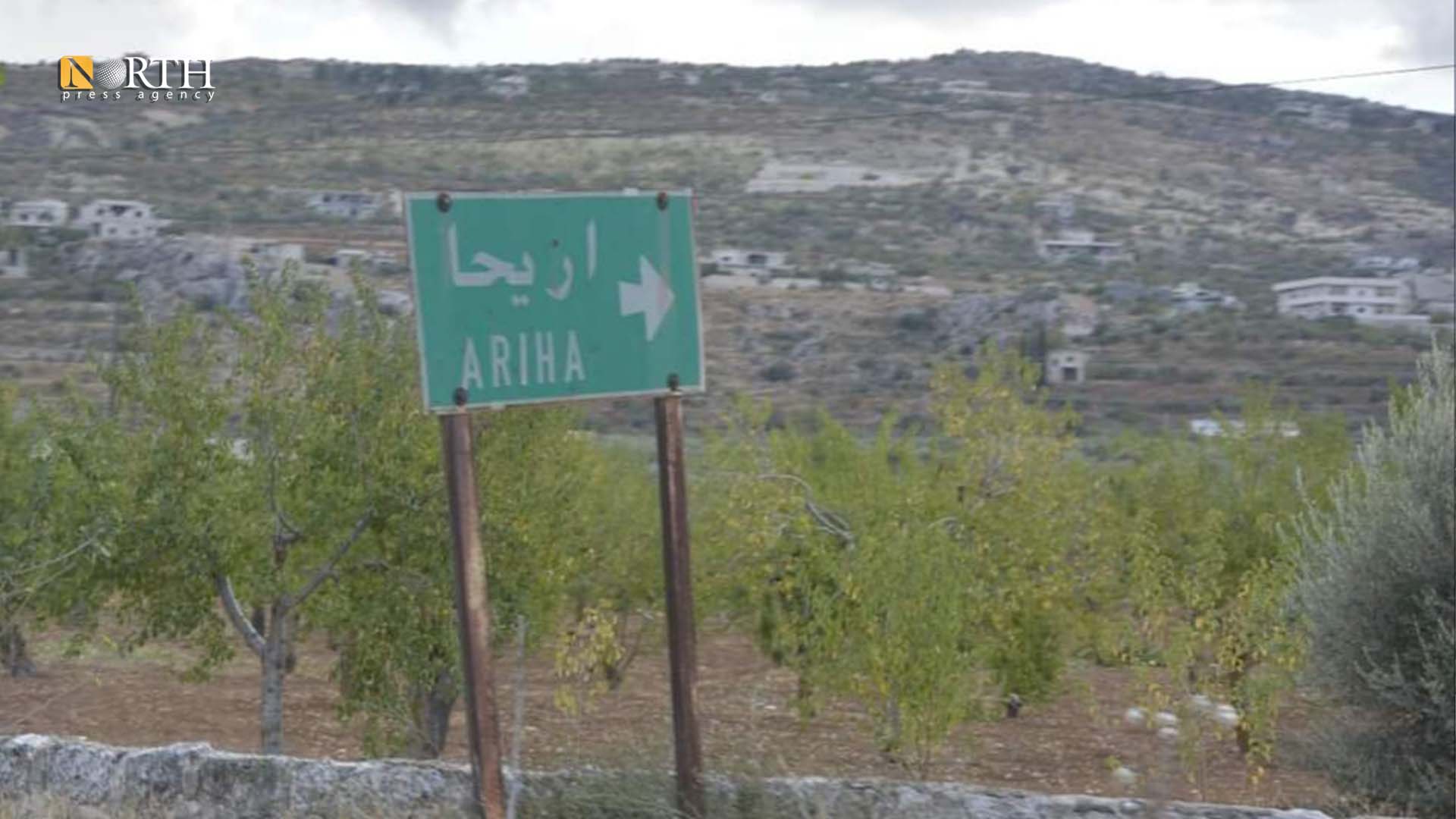IDLIB, Syria (North Press) – Residents of Zawiya Mountain and Arihah, in the southern part of northwest Syria’s Idlib, fear a new wave of displacement that the area may witness as a result of the recent military escalation by Syrian government forces and their Russian ally.
This comes amid rumors of an approaching battle by government forces against the area, especially after reports about the arrival of military reinforcements to the government forces’ frontlines in areas in Idlib, Hama, Aleppo, and Latakia.
Since mid-May, areas in the southern countryside of Idlib and the western countryside of Hama, which are subjected to a Russian-Turkish ceasefire agreement, have been witnessing intensive shelling by government forces.
Resident’s fears
“Following months of calm, the intensive shelling by government forces against the area and targeting the town with dozens shells increased people’s concerns regarding a military operation,” Ra’ed al-Zaydan, a resident of the town of Ehsim, south Idlib, said.
The town of Ehsim is 13 kilometers from the government forces-held areas.
Though Turkish posts are extensively scattered in Zawiya Mountain, al-Zaydan stressed, “This will not really curb the government advance especially; these posts have a previous experience in the northern countryside of Hama, in the eastern countryside of Idlib, and Aleppo.”
Russian-backed Syrian government forces besieged several Turkish military posts in 2019.
At the time, Turkey pledged not to abandon any site it controls in the region, but began withdrawing in October 2020 under Russian pressure.
On June 8, many residents from the town of Baluon, in Zawiya Mountain, protested in front of a nearby Turkish post following intensive shelling against the town.
Protesters called on Turkish forces to clarify what is going on in the area, Osman al-Hussein told North Press.
“Cannot be good”
Meanwhile, Turkish forces stationed in the post refused to meet with the residents and just released promises through members of the armed groups,” al-Hussein, a resident from Baloun, said.
The promises that Turkish officers made were that “officers will deliver their demands to the command in Turkey in order to clarify what is happening in the area,” which increased residents’ fears of a potential military operation against the region.
“Previously, when Turkish forces visited the area, officers used to greet us and listen to our demands; additionally, they made a lot of promises at that time that Turkish forces in these posts are there in order to protect residents,” al-Hussein stated.
“But what happened this time cannot be good,” according to him.
The Turkish posts deployed in the de-escalation zone “are not asked to be involved in any military operation that Syrian government forces may wage; Turkish forces in the Idlib countryside are combat forces, not peacekeepers or observers,” according to Colonel Mustafa Bakur, a spokesman for the Turkish-backed armed group Army of Glory (Jaysh al-Izza).
“Those posts were established according to Astana agreement, so that they are accomplishing their tasks according to Russian-Turkish agreements,” he added
Bakur ruled out any military operation to be waged by the government forces in the region.
“Current circumstances are unfavorable to wage a ground military operation against the liberated areas. What is expected is an escalation of aerial and artillery bombardments,” he added.
“Any military operation against villages and towns of Zawiya Mountain will cause massive displacement for residents of more than 30 villages and towns including Arihah, which houses more than 50,000 civilians including hundreds of IDPs, al-Hussein pointed out.
Humanitarian disaster
Meanwhile, Syrian Civil Defense Organization (White Helmets) that is operating northwest Syria warned against a new wave of displacement.
“Over the past days, regime forces escalated their shelling against villages in Zawiya Mountain, in the southern countryside of Idlib, and Ghab Plain,” Muhammad Hamada, a media official in the southern directorate of Civil Defense, told North Press.
From early 2021 until the 7th of June, teams of the Civil Defense documented more than 525 attacks by the government forces and Russia on civilian’s houses, lands, and several vital installations.
“In light of the ongoing escalation, the fears remain that a new wave of displacement from dozens of Zawiya Mountain and Ghab Plain’s villages towards the camps in the north will occur,” Hamada added.
He pointed out that these camps “are already threatened by a humanitarian disaster with the advent of the voting date in the Security Council on the mechanism to deliver humanitarian aid across the border and the possibility of using veto by Russia, the ally of the regime, to stop access from the Bab al-Hawa border crossing.”
It is expected that the Security Council will hold a meeting after the 10th of July in order to renew the vote on UN Resolution No. 2533, which provides for allowing the access of humanitarian aid to Syria from Bab al-Hawa crossing off Idlib near the Syrian-Turkish border.

